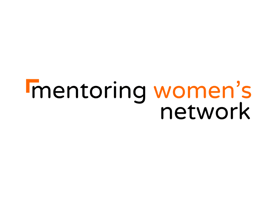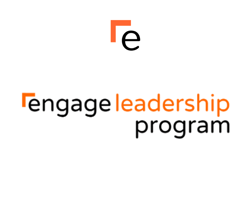Embarking on the journey of entrepreneurship can be exhilarating yet challenging, with founders and...
Showing Up as an Inclusive Leader During Pride Month
Inclusive leadership during Pride Month can be demonstrated in several ways. Creating a culture that recognizes and appreciates the diversity of their workforce, including their sexual orientations and gender identities is demonstrable throughout the year. During Pride Month, there may be an elevated focus on organizing activities or events that celebrate LGBTQ+ identities and promote understanding and acceptance.
I speak with inclusive leaders who are committed to ensuring that they foster an environment where LGBTQ+ employees feel safe, supported, and free to express their authentic selves. They actively work to eliminate discrimination, harassment, and bias, and promote policies that ensure equal opportunities for all. Inclusive leaders understand the importance of education and awareness in promoting LGBTQ+ inclusion. They may organize workshops, training sessions, or discussions to educate their team members about LGBTQ+ issues, terminology, and the challenges faced by the community. Inclusive leaders provide platforms for LGBTQ+ individuals to share their experiences, perspectives, and ideas. They ensure that LGBTQ+ voices are heard and valued within the organization and encourage open dialogue and inclusivity in decision-making processes.
Celebrating Pride may be part of a broader corporate social responsibility effort. It allows organizations to align their values and actions, contributing to a more equitable society. By taking a stand and actively participating in these celebrations, companies can demonstrate their commitment to social justice issues and be seen as positive agents of change in their communities.
I cannot stress enough how important it is that inclusive leadership is not limited to Pride Month alone. Inclusive leaders strive to create an inclusive environment throughout the year by integrating inclusive practices into their leadership style and organizational culture.
At Engage Mentoring, we are committed to helping organizations build leadership pipelines through skills-based mentoring. Mentoring LGBTQ+ individuals in the workforce can be a powerful way to support their personal and professional development. Allyship, mentoring and sponsorship may be leveraged to ensure that LGBTQ+ team members are safe, respected and valued. According to SHRM.org, less than 1% of Fortune 500 CEOs publicly identify as LGBTQ+. There may be several reasons why LGBTQ+ employees don’t feel they can advance in an organization. The underrepresentation of LGBTQ+ leaders and role models within organizations can make it challenging for LGBTQ+ employees to envision themselves in higher-level positions. A lack of representation can contribute to feelings of isolation and hinder career progression.
As an inclusive leader, ally , mentor, or sponsor some demonstrable actions can include:
- Helping them identify their strengths and areas for development, and collaborating on creating a roadmap for their professional growth.
- Offering guidance, insights, and advice based on your own experiences and expertise. Sharing relevant resources, such as articles, books, or networking opportunities, that can help your mentees further their knowledge and skills.
- Using your influence to advocate for your mentees’ career advancement and equal opportunities. Recommending them for challenging assignments, introducing them to influential contacts, or speaking up for their achievements and contributions.
- Helping build networks: Encouraging your mentees to build networks within and outside the organization. Introducing them to professional associations, LGBTQ+ employee resource groups, or other relevant networks that can provide support and connections.
- Being a role model: Modeling inclusive behavior and demonstrating your commitment to LGBTQ+ inclusion in your own actions and interactions. Showing your mentees what inclusive leadership looks like and inspiring them to become leaders themselves.
- Setting clear expectations for behavior, communicate a zero-tolerance policy for discrimination or harassment, and leading by example in promoting inclusivity.
- Offering LGBTQ+ employee resource groups or affinity networks. These groups provide a platform for LGBTQ+ individuals and allies to connect, share experiences, and offer support. ERGs can also contribute to policy development, mentorship programs, and awareness campaigns.
Remember, mentoring is a two-way process, and it is important to adapt your approach to meet the unique needs of each mentoring relationship but also be open to and encourage cross-cultural mentoring for reciprocal learnings to occur. By providing support, guidance, and advocacy, you can help LGBTQ+ employees thrive and succeed in the workplace.
To learn more about how the Engage Mentoring C-Suite Exchange and other opportunities for development can support the development of your leadership pipeline at all levels of the organization, visit www.engagementoring.com.
Yalonda Brown is a seasoned professional whose expertise spans over 20 years in both the private and public sectors. Her drive and self-determination has resulted in a myriad of demonstrable accomplishments as an intuitive leader, thought partner, and high functioning performer. Yalonda serves as the President of Diversity Initiatives for Engage Mentoring where she leads the national expansion of diversity-focused mentoring and leadership programs for companies, universities, and nonprofits.



